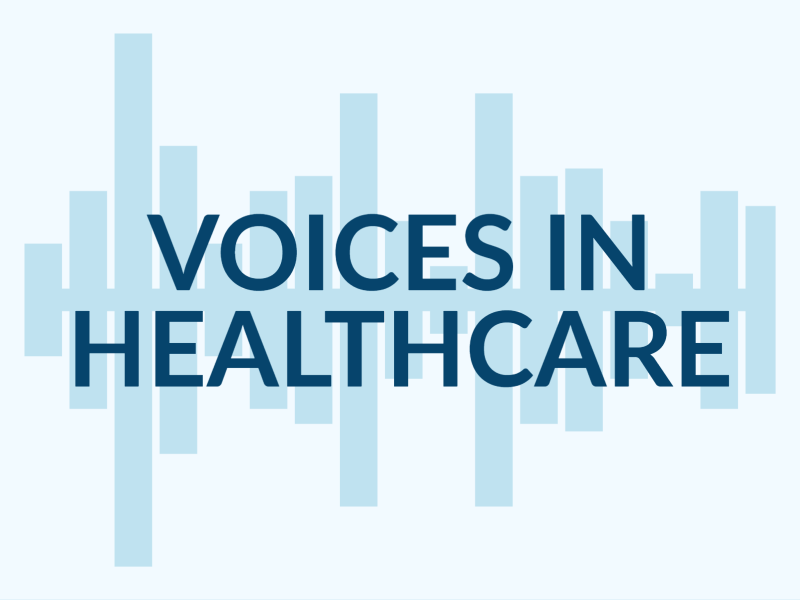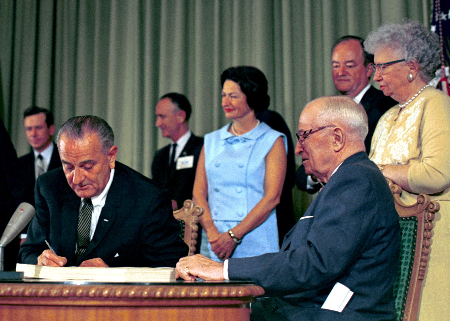Medicaid: That Was Then, This is Now


Today, July 30, marks the sixtieth anniversary of the signing of the legislation that created Medicare and Medicaid.
President Lyndon Johnson signed the Social Security Amendments of 1965, which created the healthcare programs, during a ceremony with former President Harry Truman and his wife Bess at the Truman Presidential Library in Independence, Missouri. Johnson chose the site in recognition of Truman’s early, but unsuccessful efforts to create a national healthcare program.
LBJ said of Truman on that day, “Few can see past the speeches and the political battles to the doctor over there that is tending the infirm, and to the hospital that is receiving those in anguish, or feel in their heart painful wrath at the injustice which denies the miracle of healing to the old and to the poor. And fewer still have the courage to stake reputation, and position, and the effort of a lifetime upon such a cause when there are so few that share it.”
Johnson went on to praise Truman’s “tradition of leadership,” adding, “But there is another tradition that we share today. It calls upon us never to be indifferent toward despair. It commands us never to turn away from helplessness. It directs us never to ignore or to spurn those who suffer untended in a land that is bursting with abundance.”
Approximately 68.6 million people are currently enrolled in Medicare, of which 90.1% are over age 65. The others are younger individuals with disabilities, end-stage renal disease or amyotrophic lateral sclerosis (ALS), according to the Centers for Medicare & Medicaid Services. As of March 2025, 71.2 million people in the U.S. were enrolled in Medicaid and 7.3 million were enrolled in the Children’s Health Insurance Programs (CHIP). MassHealth (which includes Medicaid and CHIP) covers approximately 1.98 million in the commonwealth.
The One Big Beautiful Bill Act, currently known as “OB3”, will cut Medicaid by $964 billion over 10 years and spending on health insurance exchanges by $124 billion, resulting in 10 million people becoming uninsured, according to the bipartisan Congressional Budget Office, which last Tuesday updated its estimates on the law. More than 300,000 people in Massachusetts are expected to lose health coverage, placing more stress on hospital emergency departments and the currently underfunded Health Safety Net fund. The potential loss at year’s end of enhanced subsidies for customers in health exchanges, combined with new rules from the administration that shorten the enrollment period and institute stronger income verifications for enrollees, could result in another five million people losing coverage. The trillion-plus-dollar cuts coupled with the rising number of uninsured will undoubtedly result in hospitals providing more care with fewer funds and challenge providers’ ability to maintain care services and remain financially viable.

 Massachusetts Health & Hospital Association
Massachusetts Health & Hospital Association